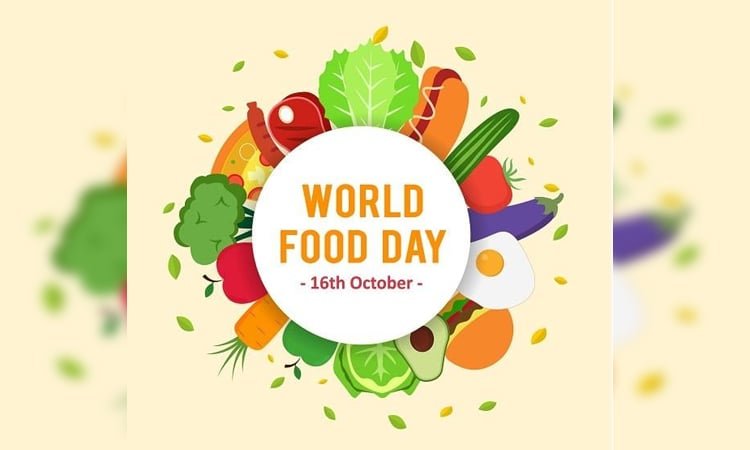World Food Day 2025: Hand in Hand for Better Foods and a Better Future

Every year on October 16, the world celebrates World Food Day, a special day that reminds everyone that food is not a privilege but a basic right. Sadly, millions of children and families still go to bed hungry every night.
World Food Day encourages people everywhere to think about how we can make sure every child has enough healthy food to grow, learn, and live well. It also reminds us to take care of our planet so that the food we eat today will still be available for future generations.
World Food Day Theme 2025
This year’s theme, “Hand in Hand for Better Foods and a Better Future,” calls on everyone, governments, schools, farmers, families, and especially young people, to work together to build a world where no one goes hungry.
The United Nations Food and Agriculture Organization (FAO) is leading this global effort, encouraging more than 150 countries to join hands and act for a future where everyone has access to safe, nutritious, and sustainable food.
The theme also challenges us to think about the unfair balance in the world: while some children face hunger, others live in places where too much food is wasted or unhealthy eating causes obesity. The goal is to build a future where everyone eats better food for a better life.
World Food Day’s History
World Food Day began in 1945, the same year the FAO was founded to fight hunger and improve nutrition worldwide.
The idea for a special global day came from Dr. Pál Romány, a Hungarian Minister of Agriculture, who wanted to celebrate the FAO’s efforts and remind the world that good nutrition is key to a healthy and peaceful life.
Since then, more than 150 countries have joined in marking World Food Day every year, making it one of the most important days on the UN calendar.
Over the years, its focus has expanded beyond hunger to include climate change, biodiversity, sustainable farming, and food justice, all of which affect children’s futures.
What Makes World Food Day Important?
World Food Day is significant because it promotes sustainable methods of food production and supply while advancing the global goal of ending hunger and malnutrition.
Despite major advancements in agriculture and technology, over 700 million people still go hungry worldwide.
Key reasons why World Food Day matters:
a. Raising Awareness of Hunger
It reminds everyone that access to food is a fundamental human right, not a privilege.
b. Promoting Sustainable and Innovative Farming Practices
Encourages the development of eco-friendly agricultural methods to ensure long-term food security.
c. Unifying Global Efforts
Brings together governments, NGOs, farmers, and citizens in the collective fight to end hunger.
d. Encouraging Sustainable Consumption
With over 30% of global food production wasted, it inspires individuals to reduce food waste and adopt responsible consumption habits.
e. Linking Food and Climate Action
Highlights how climate change affects agriculture and the urgent need for resilient food systems.
f. Empowering Rural Communities and Farmers
Recognizes the crucial role of smallholder farmers in sustaining global food supplies.
Ways to Celebrate World Food Day
Nonprofits, governments, and educational institutions celebrate World Food Day through a variety of events aimed at action, dialogue, and education.
Common activities include:
i. Food Drives and Donation Campaigns: Collecting food for local food banks and shelters.
ii. Community Feasts and Fairs: Promoting the sharing of healthy, locally produced meals.
iii. Seminars and Workshops: Discussing topics such as climate-smart agriculture, sustainable food policies, and nutrition.
iv. Educational Programs: Hosting quizzes, essay writing contests, and poster design competitions to engage students.
v. Cooking Demonstrations: Showcasing traditional and nutritious recipes from various cultures.
vi. Media Campaigns and Awareness Marches: Using social media, radio, and TV to promote sustainability and food equity.
vii. Home and Community Gardening: Encouraging families and institutions to grow their own food and plant trees.
viii. Honoring Farmers and Food Workers: Recognizing those who work tirelessly to ensure food reaches every table.
Addressing Malnutrition and Food Insecurity
The FAO encourages all nations to take action to ensure that every child, no matter where they live, has enough food to eat. To do this, countries are asked to:
- Supporting vulnerable populations by ensuring access to affordable food and stabilizing markets through transparent public spending.
- Lifting export restrictions and improving trade policies to maintain stable global food markets.
- Investing in data and information systems to strengthen decision-making in agriculture and food distribution.
- Enhancing infrastructure, research, and agricultural resilience to improve supply chain efficiency and combat rising food prices.
When governments and communities work together, children can grow up free from hunger and reach their full potential.
Conclusion
World Food Day is more than just a date on the calendar; it’s a call to action for everyone, especially children, to help create a fairer, healthier, and more sustainable world.
Food represents love, care, and equality. By working hand in hand, across borders, generations, and communities, we can make sure every child has enough to eat, every farmer is valued, and every meal shared becomes a symbol of hope, justice, and dignity for all.





